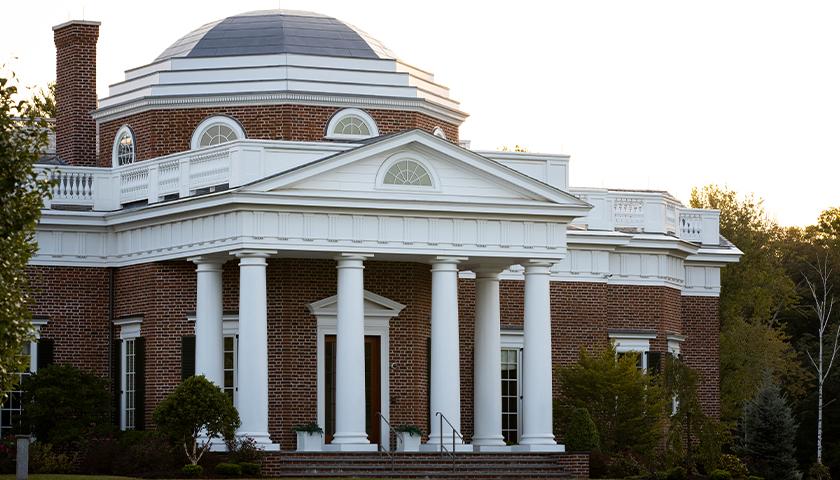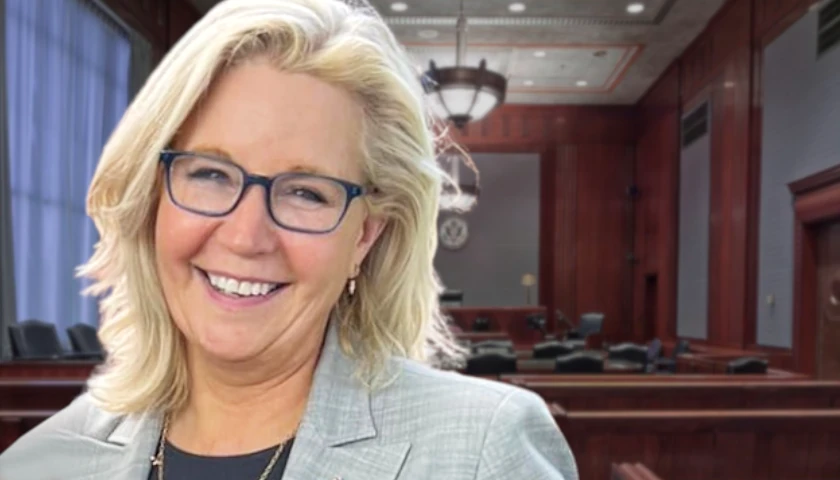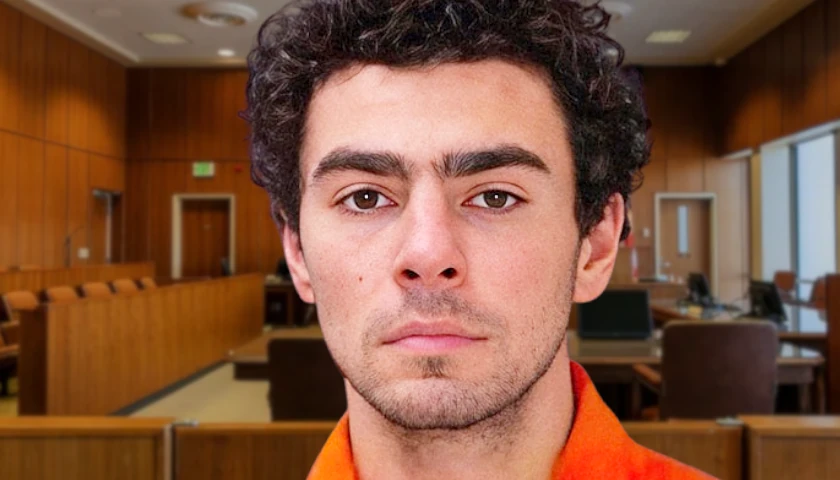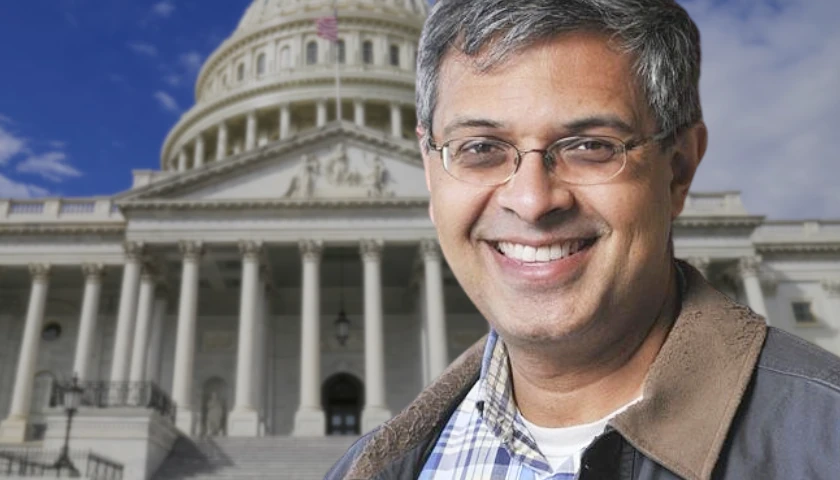Hillsdale College’s Blake Center for Faith and Freedom in Somers, Connecticut, received clearance from the town’s zoning commission to expand its offering of events and increase the number of people who attend them.
The executive director of the Blake Center, which is a replica of Thomas Jefferson’s Monticello, spoke with The Star News Network about the zoning commission’s unanimous approval of a modified special-use permit that will allow Hillsdale to increase the number of allowed guests at the center’s seminars and other events to 75.
“So, now we have greater flexibility to engage in the kind of programs we want to, and this is good on a couple of levels, not the least of which is there’s sort of a common sense component to this,” Labin Duke explained, “where our restrictions before specified how many, of which kind of events, for how many days, for how many participants.”
Consequently, the old restrictions, Duke said, were “hyper-specific” with restrictions on the number of people allowed, depending on the event’s topic and the number of days in the event.
“So, very specific to the types of events which, honestly, in the run of things, was not the way it should have been when Hillsdale initially submitted to the town three years ago their list of intended programming,” Duke continued, explaining that the Blake Center ultimately had to learn which programs and events were of the most interest to people.
“Last fall, when we had an event on the schedule, and not enough people signed up, we had to close that event,” he said. “And in the debrief from that, one of the things that we figured out was, okay, people, want a shorter engagement on the event, and they don’t want to commit three or four days to this particular topic. And the feedback we received from people was, yes, but I would have come for two days.”
“Anytime you try out a new venture, you have to be willing to experiment, and that’s one of the beautiful things about Hillsdale: whether it’s online courses, or their newsletter, or any of their ventures, they allow for some pointed testing, so that way we can figure out what works and what doesn’t work,” he said.
Duke added that learning about peoples’ preferences for the events they wanted and how much time they were willing to commit to them prompted him to think the former restrictions didn’t make sense.
The rigid restrictions on events and the number of people attending them stemmed originally from concerns among the Blake Center’s neighbors that their quiet road would be flooded with the cars of people attending the seminars and other happenings.
Duke explained:
The issue of or whether or not other people in this residential zone still have the enjoyment and full use of their property is the only legal component with any kind of teeth. And yes, because Hillsdale is a religious institution, we’re allowed to be in this residential zone, but we still have to, you know, we call it being good neighbors. But the way the legal requirement reads is our neighbors have to have the full use and enjoyment of their property. If we infringe upon that, then that’s when we’re no longer abiding by the restrictions in the zone.
The Blake Center, Duke observed, also hopes to be able to host more Hillsdale events, and have some flexibility on how they do that, and host some outside groups as well, such as a fundraiser for a charitable organization or even a blood drive.
The center already gave its property and ponds to the 50th anniversary Somers Rotary Fishing Derby after the organization found out the pond it had been using for years was not available.
Duke said once the parking lot was completed and the Blake Center held a number of events, Hillsdale was able to assess the logistics of when cars start arriving for an event when they leave, and whether they can be seen from the road – in the real world.
“There was the common sense application, but then there’s the practical application of, okay, well, there’s really no reason to have these limits, if there’s not a risk of us disturbing the neighbors,” he noted.
“There’s some testing we did to where we hosted some events and didn’t necessarily advertise it directly to any of the neighbors, and then I followed up afterwards with, you know, just checking in to make sure that we didn’t bug you last night,” Duke noted, “and some of the responses I got was, ‘Well, no, you didn’t bug us. We didn’t know you did anything.’”
“I was like, well, there you go,” he said. “If no one’s the wiser, than great.”
– – –
Susan Berry, PhD, is national education editor at The Star News Network. Email tips to [email protected]





